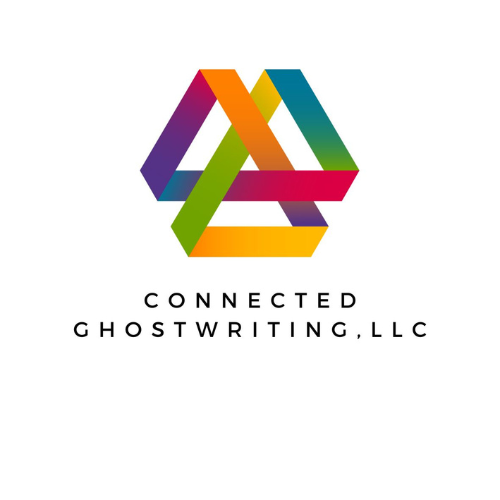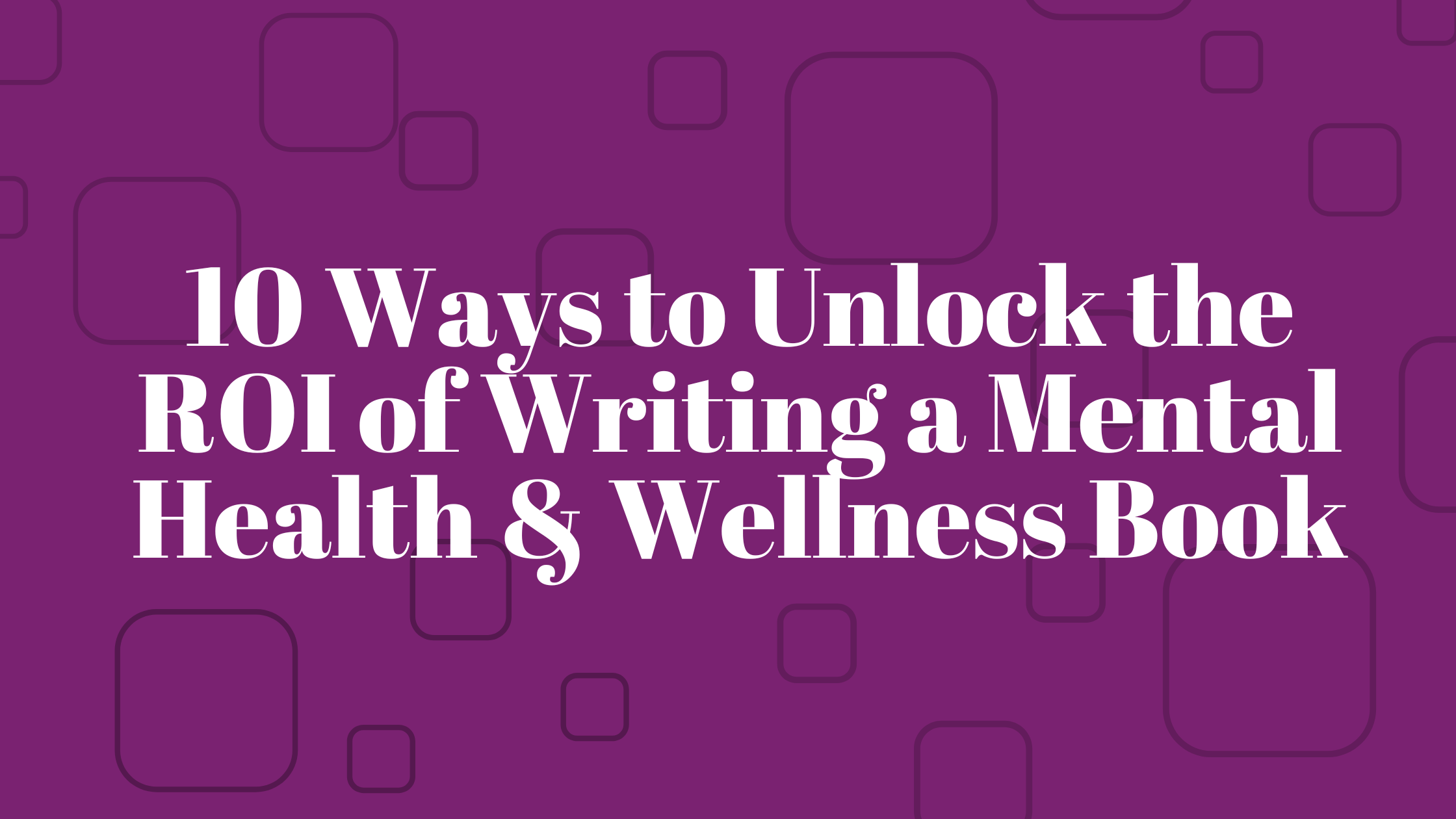For mental health and wellness professionals, publishing a book can be one of the most strategic moves in your career. Whether you go through traditional publishing or opt to become one of the many self-published authors on platforms like Amazon, a book can open new doors and generate author earnings in ways that extend far beyond book sales. But what can you really expect in terms of ROI from writing your first book, and how does it impact your career in the long run?
If you’re thinking about writing a book to share your expertise in mental health and wellness, the benefits reach far beyond selling copies on Amazon or your website. This article will explore how both traditionally published authors and self-published authors can see significant returns—financially and professionally—by taking that leap and publishing a non-fiction book.
1. Increased Consulting Fees
Writing a published book in the mental health and wellness space immediately positions you as an authority. Whether you’re a therapist, coach, or wellness consultant, your book proves that you’re not just talking the talk—you’re walking it. This increased authority often translates into the ability to charge higher fees for your consulting services.
For example, many self-published authors find that after releasing their first book, they can raise their rates by 20%, 50%, or even more. Clients view you as an expert in the field, which allows you to move from part-time consulting work to a full-time or even full-time author income.
After publishing her book, we have a client who started charging $50,000 for her consulting work. She had people willing (and excited) to pay her rate because she was an authority in the field. It’s like street-cred, but for mental health and wellness professionals.
2. Increased Client Prospects
Books, particularly in the mental health and wellness space, serve as an introduction to your work for potential clients. Whether it’s on Amazon, through your social media channels, or via bookstores, your book can reach audiences who may never have encountered your services otherwise. Many new authors see their book as an extended business card—a way to offer value upfront while showcasing their methods and expertise.
Publishing your first book offers a unique chance to connect with people looking for exactly the kind of help you provide. Book sales aren’t the only form of return you should expect; each reader is also a potential client, and many will be interested in seeking direct guidance from the expert who “wrote the book” on their issue.
3. Boosted Credibility and Authority
In the crowded field of mental health and wellness, it’s not always easy to stand out. Writing a bestseller or even a moderately successful self-published book immediately differentiates you from the crowd. People trust books—especially non-fiction ones written by professionals. A published book grants you the credibility that years of practice alone sometimes can’t achieve.
For example, traditionally published authors may enjoy the added benefit of being backed by a publishing house, while self-published authors have the advantage of higher creative control and higher royalties through platforms like Kindle Direct Publishing (KDP). Either way, a book adds undeniable weight to your name, and with it, more opportunities to collaborate, partner, or even land a book deal for your next book.
4. Increased Confidence
The process of writing a book is no small feat, and completing one can significantly boost your own confidence. Many mental health professionals deal with imposter syndrome despite years of experience, but becoming a published author—whether through traditional publishing or self-publishing—shifts your self-perception. You’ve solidified your authority, and that authority radiates through your work.
Whether you decide to write a hardback or audiobook version of your book, knowing that you’ve put in the hard work required to share your expertise with the world will make you feel more confident in your day-to-day interactions with clients.
5. New Intellectual Property (IP) Creation
Writing a book creates intellectual property that you can leverage far beyond the page. Whether it’s turning your non-fiction book into an audiobook or repurposing chapters as blog posts, workshops, or online courses, your book becomes a valuable asset that you can monetize in various ways.
Self-published authors often enjoy more flexibility in this area, especially when using platforms like Amazon and KDP, where they can easily adapt content to new formats like audiobooks or print books. Plus, the book royalties earned through these platforms can add a steady income stream to your author salary.
6. Improved Messaging
Writing a book forces you to refine your message. Whether you’re writing to help clients, patients, or even other professionals in the field, the publishing process requires you to clarify your thoughts, goals, and expertise. This clarity doesn’t just help your readers; it also sharpens your communication in your practice.
Once your messaging is clear in your book, it becomes easier to market yourself on other platforms—your website, social media, or even in bookstores. This refined messaging often results in attracting higher-quality clients and collaborations.
7. Speaking and Media Opportunities
Being a published author can catapult you into public speaking and media opportunities. Conferences, webinars, and social media platforms all have a need for experts who can present fresh insights, and what better way to prove your expertise than by saying, “I’ve written a book on the subject”?
Once you’re introduced as an author at an event, it’s easier to be invited back for additional speaking engagements, panel discussions, or even media appearances. For mental health and wellness professionals, this kind of visibility is priceless. Each opportunity increases your earning potential, from book sales to consulting work.
8. Stronger Client Retention
For professionals in the mental health and wellness field, publishing a book isn’t just about attracting new clients—it’s also about retaining existing ones. Clients want to work with experts who are continuously honing their craft, and having a published book shows that you’re committed to your ongoing education and expertise.
Offering your self-published book as a resource for your clients deepens their connection to you. This can also help them stay committed to the methods and philosophies you’ve outlined in your book, improving client retention and long-term engagement.
9. Positioning Yourself as an Industry Leader
Writing a book sets you apart as a leader in your field. It’s a testament to your knowledge, research, and dedication. Whether you’re focusing on self-publishing or navigating the waters of traditional publishing, your book solidifies your role as a key figure in the industry.
While Stephen King and other successful authors in the science fiction realm dominate bestseller lists, even first-time authors in the mental health and wellness space can achieve significant impact by positioning themselves as the go-to resource in their niche. As you gain more recognition, your book may even influence traditional publishing offers or book deals for future projects.
10. Opportunities for New Revenue Streams
Your book can generate a multitude of revenue streams. Beyond book sales on Amazon or other retailers, your first book can serve as the foundation for:
- Online courses
- Corporate wellness programs
- Workshops or retreats
Many self-published authors see their book as just the beginning of a much larger income strategy, moving from part-time consulting work to full-time writers or professionals with diverse streams of income. With KDP offering higher royalties than traditional publishing, your book can keep earning long after its initial release.
At Connected Ghostwriting, we have curriculum experts on staff who can take your book and turn it into an online course so you can capitalize on that opportunity right away!
The ROI You Can’t Afford to Miss
Whether you’re looking at self-publishing through Amazon or securing a publishing contract with a publishing house, the returns from writing a book in the mental health and wellness space are significant. From increased consulting fees to book royalties, stronger client retention, and new speaking opportunities, the benefits extend far beyond the initial amount of money your first book brings in.
In an industry where trust, expertise, and authority are crucial, becoming a published author is one of the most potent ways to boost your credibility and open up new opportunities.
To learn more, and take your first step toward maximizing ROI, download our free Book Writing Starter Kit today!


